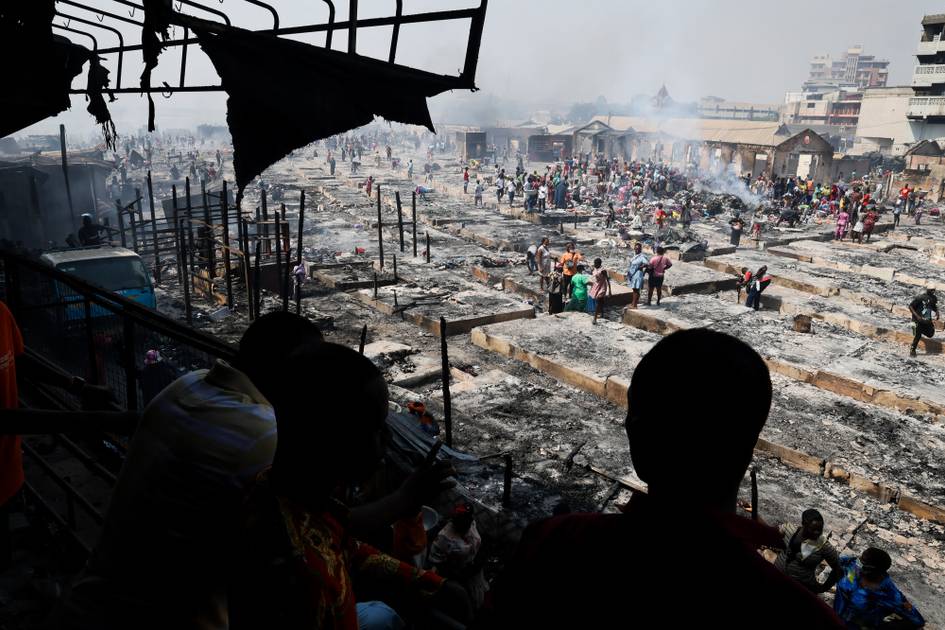SATELLITE images of the humiliating Israeli revenge strike on an Iranian airbase have revealed the true extent of Tel Aviv’s precision hit.
The Isfahan base, home to valuable air defence kit, was struck on Friday in an attack that seemed to scare Iran into backing down after vicious threats.
An Iranian opposition outlet has now revealed footage of the damage sustained in the revenge blast which struck near a valuable nuclear base.
The satellite clip shows the before and after of a S-300 air defence system – which Iran claimed successfully shot down Israeli drones.
It shows an incredibly precise area of damage where the missile hit, leaving a contained but noticeable blackened impact in the ground.
Scorch marks and damage appears to have stretched to the surrounding kit around the centre target as well.
It came after Iran launched 331 missiles and attack drones at Israel on Saturday last weekend – in an unprecedented and brazen escalation.
Iran’s attempt was thwarted almost completely – with over 99 per cent of its rockets shot down by Israel and its allies.
On Friday morning Tel Aviv only had to fire a very small number of – possible, precision-guided missiles – to strike an incredibly deliberate and tactical target.
The clip, published by opposition outlet Iran International, rubs salt in the wounds Iranian officials are probably still licking.
It brings home the sharp contrast between Israel’s highly developed, state of the art military tech and Iran’s outdated kit.
Tehran on Friday made a rapid and desperate attempt to downplay the successful precision hit by Israel.
They blasted images of a “tranquil” Isfahan on state TV and tried to save face in front of the world.
And officials have so far only admitted to a small number of explosions caused by air defences hitting three drones flying over the city.
Tehran’s foreign minister even branded media reports of Israel’s successful hit – which struck on Iran’s Supreme Leader’s birthday – “inaccurate”.
He compared the “drones”, reported by many to be missiles, to “children’s toys”.
And the blustering minister insisted there was no connection to Israel.
Hossein Amirabdollahian told NBC: “They’re … more like toys that our children play with, not drones.
“It has not been proved to us that there is a connection between these and Israel.”
Today Iran’s Supreme Leader Ali Khamenei thanked his armies for the failed April 13 operation against Israel.
He told them to “ceaselessly pursue military innovation and learn the enemy’s tactics”.
The deluded despot claimed Iran had “demonstrated its will-power during that operation”.
A Middle East policy expert told Sky that the “Iranians are very scared” following the strike.
Despite Iran’s weak attempts to save face, the hit seems to have scared them into backing down after Amirabdollahian appeared to put the tit-for-tat exchanges to bed.
Amirabdollahian said that if Israel were to hit out at the country then Iran’s response would be fierce and immediate.
Read more on the Scottish Sun
He added: “But if not, then we are done. We are concluded.”
By not naming Israel as its attacker in the Isfahan hit – as reports say – Iran is avoiding a push to live up to promises of more revenge strikes.
Iran’s aerial attack on Israel

IRAN launched an unprecedented aerial barrage on Israel overnight on Saturday April 13.
BY ELLIE DOUGHTY
In the first attack of its kind, Iran hurled 110 ballistic missiles, 36 cruise missiles and 185 attack drones across Middle Eastern airspace.
Between Israel’s impressive Iron Dome air defence system and allied efforts from the UK and US, Tehran’s attack was largely thwarted.
At least four Typhoon fighters took out some of the weapons bound for Israel after scrambling from the RAF Akrotiri base in Cyprus.
Israeli President Isaac Herzog described the ambush as a “declaration of war”.
Despite worldwide calls for cool heads to prevail, Netanyahu’s ranks repeatedly insisted that a retaliatory strike would be the only response.
IDF spokesman Rear Admiral Daniel Hagari said: “We cannot stand still from this kind of aggression, Iran will not get [off] scot-free with this aggression.
“We will respond in our time, in our place, in the way that we will choose.”
Iran’s Supreme National Security Council vowed to hit back against Israel if a counter-attack was launched.
US president Joe Biden, said to privately fear a catastrophic escalation in the Middle East, pushed Netanyahu to call off an immediate retaliation on Saturday night.
Israel’s war cabinet then spent days locked in crunch meetings and quickly approved plans for an “offensive” but the timing and scale remained murky.
Despite Israel claiming otherwise, the US made clear that it would not contribute to a revenge hit against Iran.












